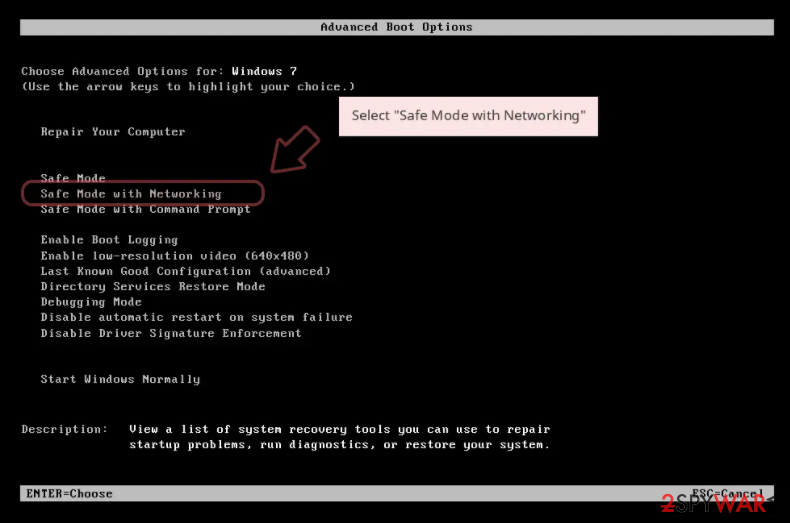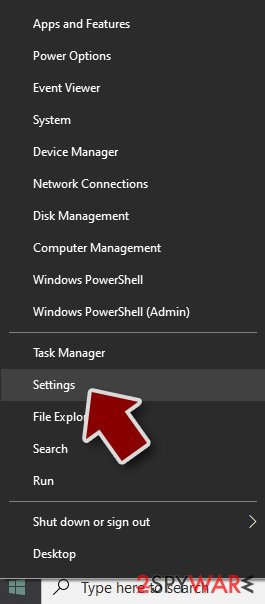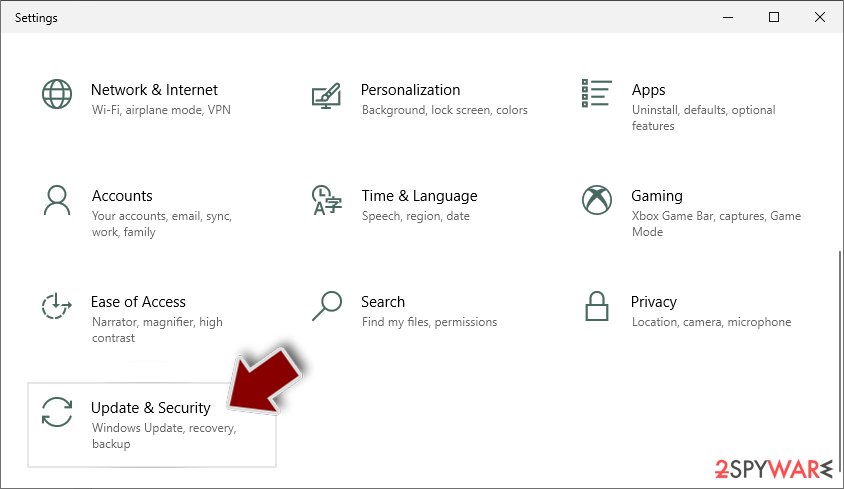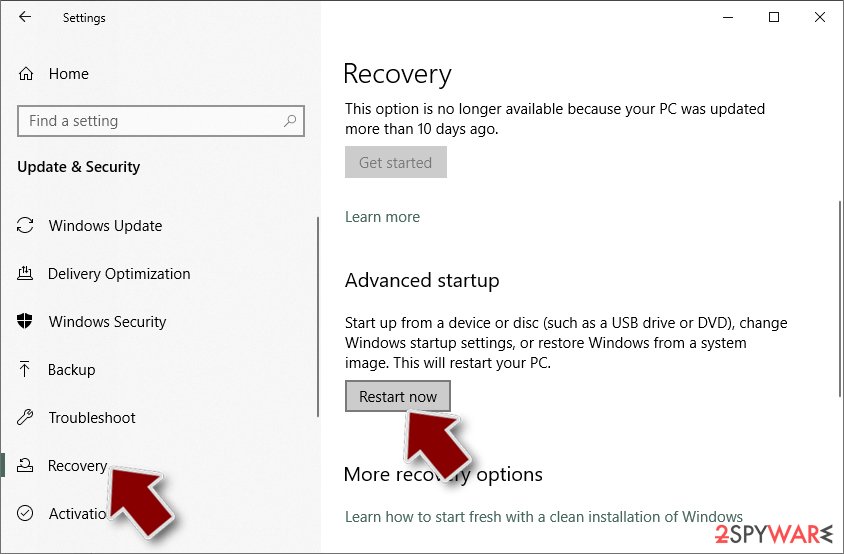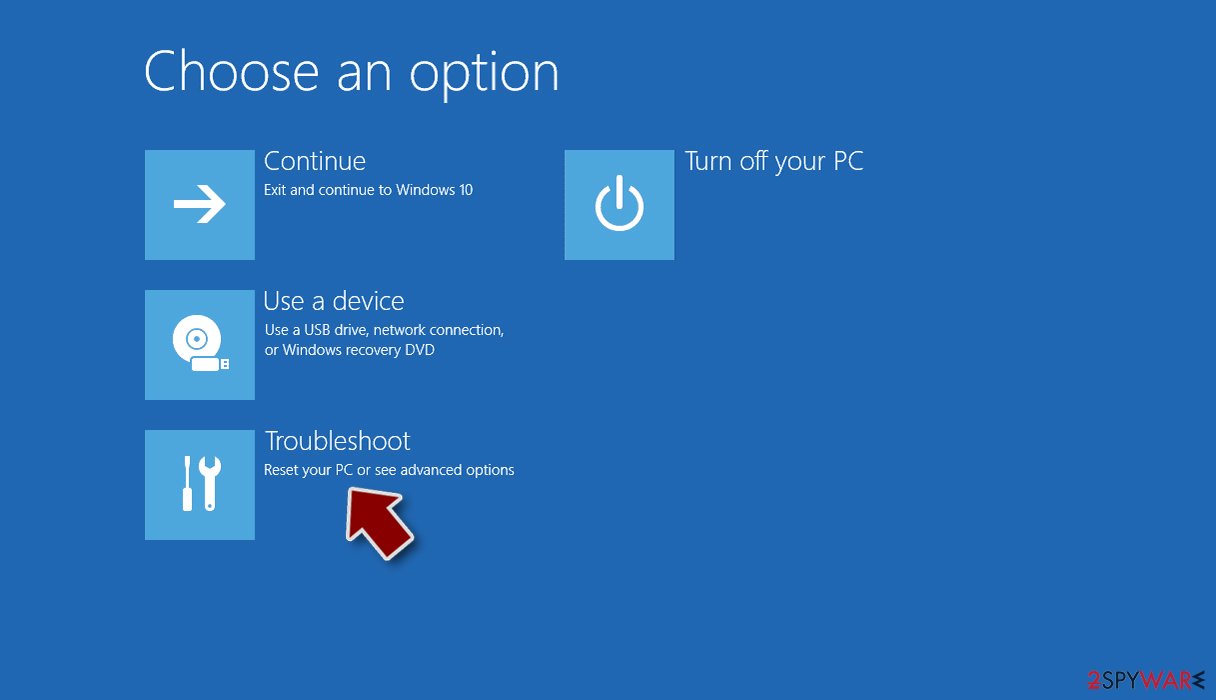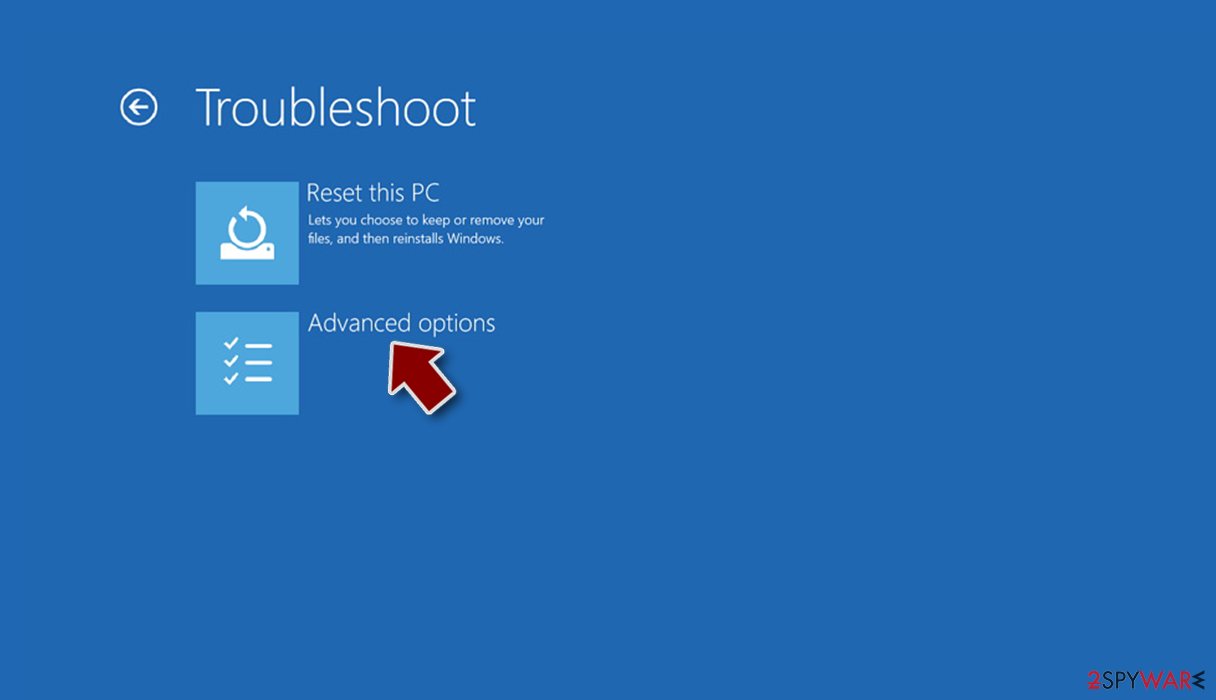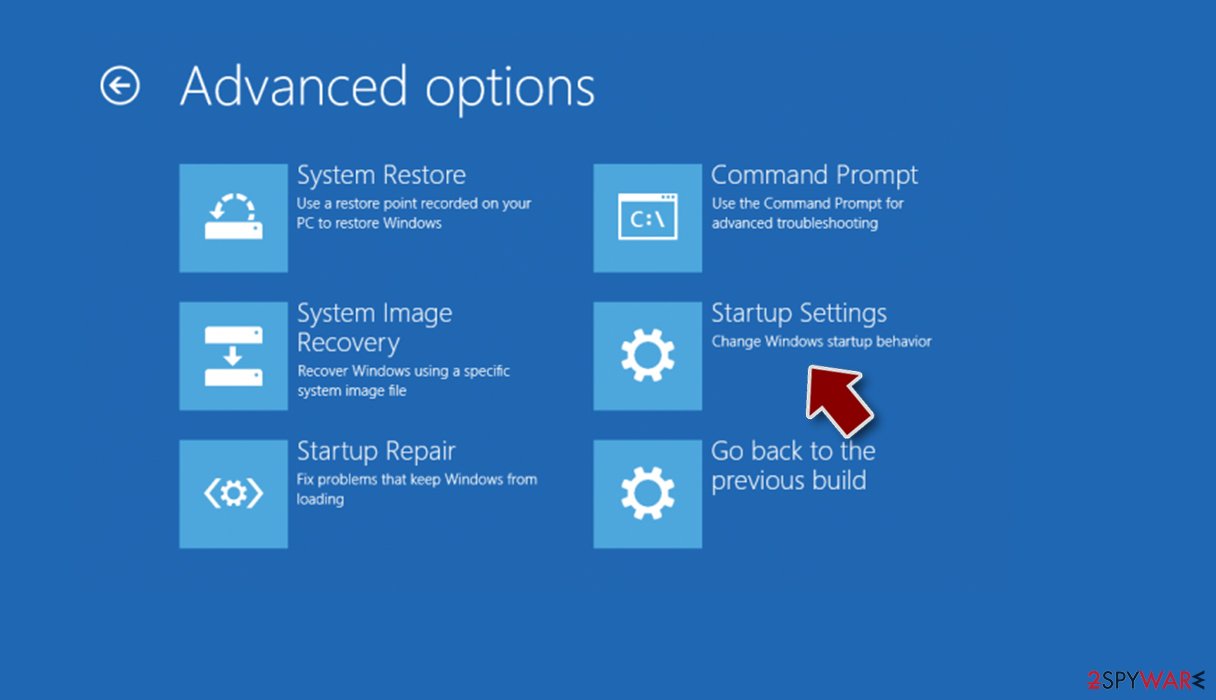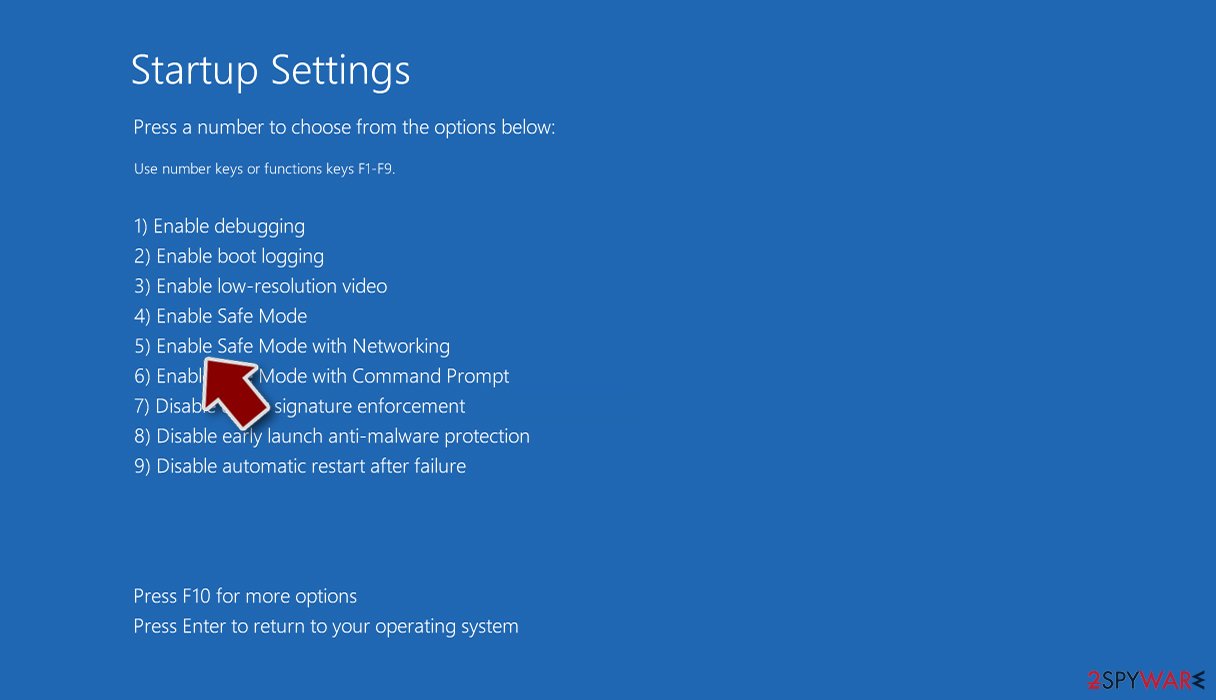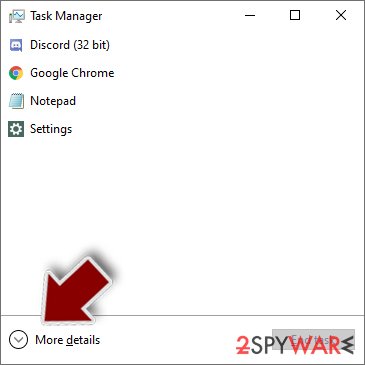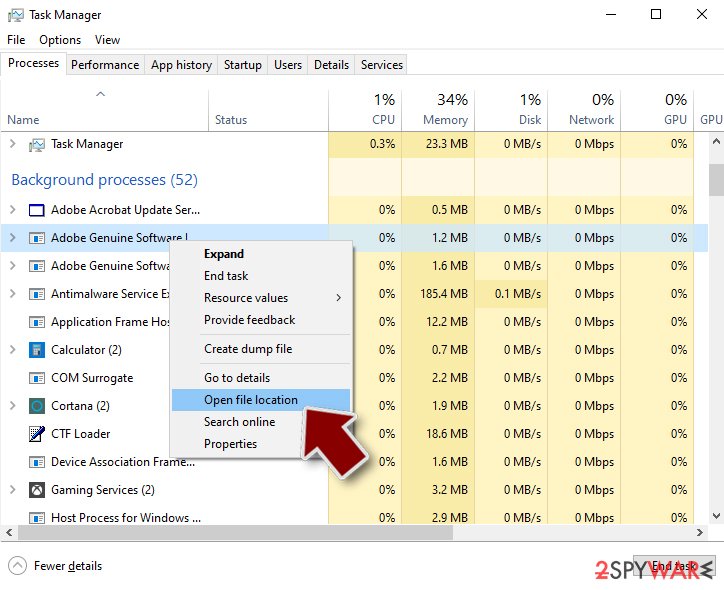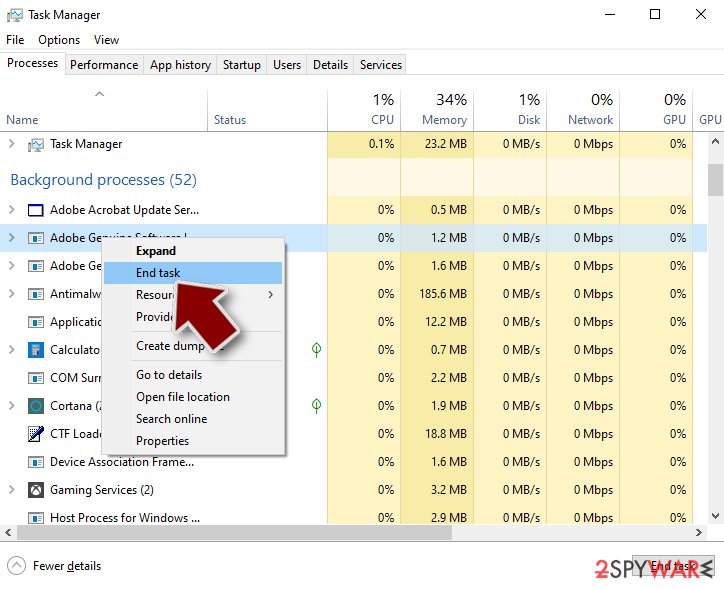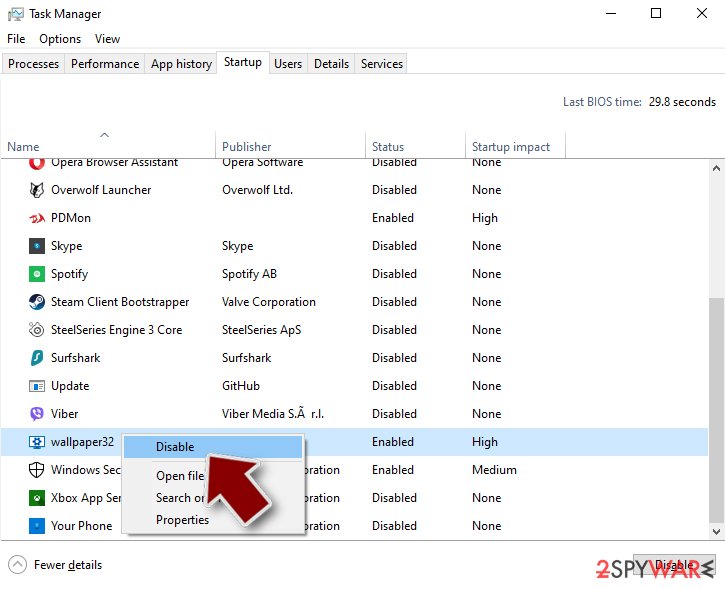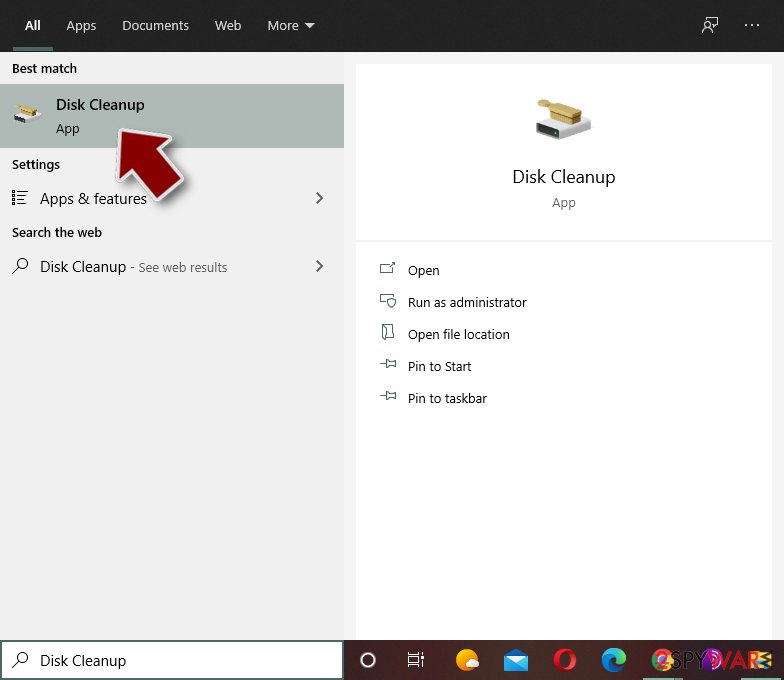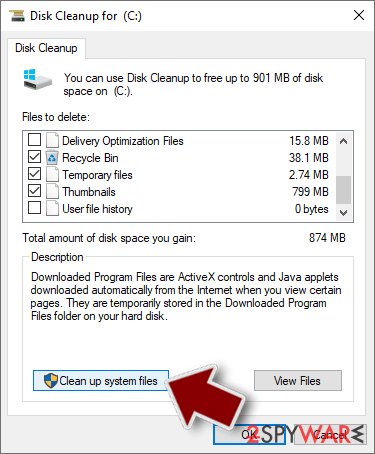UltraCrypter ransomware / virus (Improved Guide)
UltraCrypter virus Removal Guide
What is UltraCrypter ransomware virus?
What should you know about UltraCrypter virus?
Cyber security experts speculate that newly emerged UltraCrypter virus is an alternative for currently rampaging CryptXXX virus. This virtual threat is capable of inflicting as much damage as any ordinary virus of this kind. It belongs to ransomware group of family – the greatest fear of Internet users. The most devastating outcome of this virus is that it sneaks into a computer and encodes valuable personal information with an elaborate encryption algorithm. Thus, to get the files back, a victim needs to obtain a decryption key. Unfortunately, it does not come for free. He or she has to pay 1.2BTC which equals to $567.6! If this ominous virus happened to take over your device, muster your patience and start UltraCrypter removal process. We recommend installing FortectIntego to do that.
It has been observed that latest viruses tend to use RSA-4096 or RSA-2048 encoding algorithms. Thus, it involves public and private key. In order to renew the access to personal information, a victim should acquire the private key to unlock the data which has been encrypted with the public key. If you happen to have more 500 dollars, do not rush to give it to cyber criminals. You might end up loosing the money and fail to get the data back.
Speaking of the peculiarities of UltraCrypter malware, this virus belongs to the generation of malware which tends to use Tor browser. Thus, in the .txt file, it is indicated that a victim has to access the provided hyperlinks to follow the payment instructions. Paying the money should grant the renewed access to the files. Brushing aside such promises, you should remain rational and instead focus on how you can remove UltraCrypter. In addition, you might employ data recovery application – R-studio.
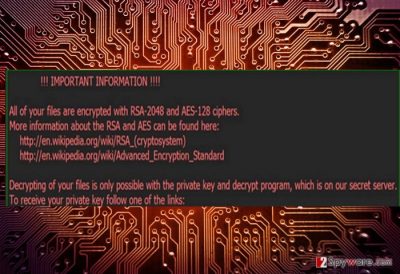
Like CryptXXX or other infamous viruses (CryptoWall and TeslaCrypt), the virus sets a time limit within which a victim should pay the ransom. Certainly, such pressure on victim’s emotional state has resulted in successful earning of several thousands of dollars. In addition, UltraCrypter ransomware adds .cryp1 extension to every file.
The transmission methods of the virus
This particular threat travels the same way like its “siblings.” It can infect computer either via P2P file sharing domains, email attachments or trojans. Cyber security specialists have revealed that Ultra Crypter tends to use Angler exploit kit, the same malware used by CryptXXX. Since the exploit kit is capable of disguising itself from anti-virus software, it has been a popular medium for spreading the ransomware. In order to ward off the malware, it is of utmost importance to install an anti-spyware program to prevent the infection from activating on your system.
In addition, the cyber criminals have improved their persuasion techniques by creating false alerts and invoices. When a trustful user receives an email which urges to review the payment details or fill the form for a possible tax refund, he fails to realize what problems lie ahead. Thus, in order to prevent UltraCrypter virus, you need to be vigilant and update your security programs daily.
Remove UltraCrypter quickly
Unless you specialize in IT programming, the only effective way to eliminate UltraCrypter virus is to use an anti-spyware program. It is specifically designed to counterattack any ransomware. Do not forget that only the newest and updated version of the anti-spyware will ensure complete UltraCrypter removal. Therefore, it is an invaluable protector of the operating system which can block such malware as Angler exploit kits. If you struggle to launch any of security programs, take a look at the recovery instructions below. After the virus is eliminated, think of the alternatives to store your personal data. Keeping it in several portable domains might be an option as well.
Getting rid of UltraCrypter virus. Follow these steps
Manual removal using Safe Mode
Important! →
Manual removal guide might be too complicated for regular computer users. It requires advanced IT knowledge to be performed correctly (if vital system files are removed or damaged, it might result in full Windows compromise), and it also might take hours to complete. Therefore, we highly advise using the automatic method provided above instead.
Step 1. Access Safe Mode with Networking
Manual malware removal should be best performed in the Safe Mode environment.
Windows 7 / Vista / XP
- Click Start > Shutdown > Restart > OK.
- When your computer becomes active, start pressing F8 button (if that does not work, try F2, F12, Del, etc. – it all depends on your motherboard model) multiple times until you see the Advanced Boot Options window.
- Select Safe Mode with Networking from the list.

Windows 10 / Windows 8
- Right-click on Start button and select Settings.

- Scroll down to pick Update & Security.

- On the left side of the window, pick Recovery.
- Now scroll down to find Advanced Startup section.
- Click Restart now.

- Select Troubleshoot.

- Go to Advanced options.

- Select Startup Settings.

- Press Restart.
- Now press 5 or click 5) Enable Safe Mode with Networking.

Step 2. Shut down suspicious processes
Windows Task Manager is a useful tool that shows all the processes running in the background. If malware is running a process, you need to shut it down:
- Press Ctrl + Shift + Esc on your keyboard to open Windows Task Manager.
- Click on More details.

- Scroll down to Background processes section, and look for anything suspicious.
- Right-click and select Open file location.

- Go back to the process, right-click and pick End Task.

- Delete the contents of the malicious folder.
Step 3. Check program Startup
- Press Ctrl + Shift + Esc on your keyboard to open Windows Task Manager.
- Go to Startup tab.
- Right-click on the suspicious program and pick Disable.

Step 4. Delete virus files
Malware-related files can be found in various places within your computer. Here are instructions that could help you find them:
- Type in Disk Cleanup in Windows search and press Enter.

- Select the drive you want to clean (C: is your main drive by default and is likely to be the one that has malicious files in).
- Scroll through the Files to delete list and select the following:
Temporary Internet Files
Downloads
Recycle Bin
Temporary files - Pick Clean up system files.

- You can also look for other malicious files hidden in the following folders (type these entries in Windows Search and press Enter):
%AppData%
%LocalAppData%
%ProgramData%
%WinDir%
After you are finished, reboot the PC in normal mode.
Remove UltraCrypter using System Restore
-
Step 1: Reboot your computer to Safe Mode with Command Prompt
Windows 7 / Vista / XP- Click Start → Shutdown → Restart → OK.
- When your computer becomes active, start pressing F8 multiple times until you see the Advanced Boot Options window.
-
Select Command Prompt from the list

Windows 10 / Windows 8- Press the Power button at the Windows login screen. Now press and hold Shift, which is on your keyboard, and click Restart..
- Now select Troubleshoot → Advanced options → Startup Settings and finally press Restart.
-
Once your computer becomes active, select Enable Safe Mode with Command Prompt in Startup Settings window.

-
Step 2: Restore your system files and settings
-
Once the Command Prompt window shows up, enter cd restore and click Enter.

-
Now type rstrui.exe and press Enter again..

-
When a new window shows up, click Next and select your restore point that is prior the infiltration of UltraCrypter. After doing that, click Next.


-
Now click Yes to start system restore.

-
Once the Command Prompt window shows up, enter cd restore and click Enter.
Finally, you should always think about the protection of crypto-ransomwares. In order to protect your computer from UltraCrypter and other ransomwares, use a reputable anti-spyware, such as FortectIntego, SpyHunter 5Combo Cleaner or Malwarebytes
How to prevent from getting ransomware
Access your website securely from any location
When you work on the domain, site, blog, or different project that requires constant management, content creation, or coding, you may need to connect to the server and content management service more often. The best solution for creating a tighter network could be a dedicated/fixed IP address.
If you make your IP address static and set to your device, you can connect to the CMS from any location and do not create any additional issues for the server or network manager that needs to monitor connections and activities. VPN software providers like Private Internet Access can help you with such settings and offer the option to control the online reputation and manage projects easily from any part of the world.
Recover files after data-affecting malware attacks
While much of the data can be accidentally deleted due to various reasons, malware is one of the main culprits that can cause loss of pictures, documents, videos, and other important files. More serious malware infections lead to significant data loss when your documents, system files, and images get encrypted. In particular, ransomware is is a type of malware that focuses on such functions, so your files become useless without an ability to access them.
Even though there is little to no possibility to recover after file-locking threats, some applications have features for data recovery in the system. In some cases, Data Recovery Pro can also help to recover at least some portion of your data after data-locking virus infection or general cyber infection.
